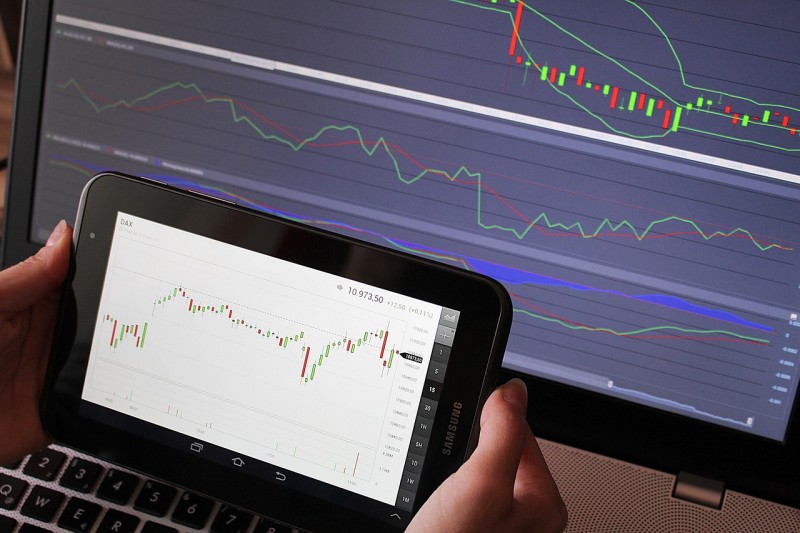As a developer, you're no stranger to the fast-paced world of technology. You're skilled at solving complex problems, building efficient systems, and adapting to evolving tools and platforms. But have you ever considered applying that same mindset to the financial world—specifically, to forex trading?
In recent years, many tech professionals have started exploring forex (foreign exchange) markets as a side hustle or investment opportunity. With the right knowledge, strategy, and tools, it’s possible to turn your analytical thinking into a practical asset for financial growth.
In this article, we’ll break down the essentials of forex trading, explain how your developer skill set gives you a natural edge, and explore resources that can help you get started effectively.
What Is Forex Trading?
Forex trading involves the buying and selling of currencies on the foreign exchange market with the goal of making a profit. It’s one of the largest and most liquid financial markets in the world, with over $6 trillion traded daily.
Here’s a basic breakdown:
- Currencies are traded in pairs (e.g., EUR/USD, GBP/JPY).
- Traders speculate on whether one currency will rise or fall in value against another.
- The market operates 24 hours a day, five days a week.
Unlike stocks, forex trading doesn't require investing in a company. Instead, you’re working with economic trends, interest rates, political events, and even technical indicators.
Why Developers Are Well-Suited for Forex Trading
Many developers unknowingly have traits and skills that align well with the demands of forex trading. Here’s how:
1. Analytical Thinking
Forex trading relies heavily on analyzing charts, recognizing patterns, and interpreting data. Developers already approach problems in a structured and logical way, making them well-equipped for market analysis.
2. Automation and Scripting Knowledge
Developers can automate trading strategies using tools like MetaTrader or custom-built bots. Python, in particular, is widely used in creating trading algorithms.
3. Risk Assessment
You understand version control, debugging, and how to test features before deployment. These practices reflect a careful, calculated approach—perfect for managing risk in trading.
4. Adaptability
Forex markets are dynamic, and so is technology. As a developer, you’re already trained to stay updated, adapt to new environments, and continually optimize workflows—an essential mindset for staying successful in trading.
Learning Forex the Right Way
Before diving into forex trading, it's essential to build a solid foundation. The market can be volatile and unpredictable, so education is key.
If you're just starting, https://learn2.trade/ is an excellent resource for understanding the basics of forex, market signals, risk management strategies, and real-time insights. The platform is tailored to beginners and offers structured content that explains complex terms in simple, digestible formats—perfect for developers who prefer to learn methodically.
Key Concepts Every Developer-Turned-Trader Should Know
To transition smoothly into forex trading, it’s helpful to familiarize yourself with a few core concepts:
Technical Analysis
This involves studying price charts and using indicators to forecast future price movements. Common tools include:
- Moving Averages (MA)
- Relative Strength Index (RSI)
- Bollinger Bands
- Fibonacci Retracement
These tools work similarly to performance metrics or logs—data-driven ways to guide your decisions.
Risk Management
Managing losses is just as important as making profits. Strategies include:
- Setting stop-loss orders to cap potential losses
- Using position sizing to avoid overexposure
- Maintaining a risk/reward ratio (e.g., risking $1 to make $3)
Leverage and Margin
Leverage allows you to control larger positions with a smaller capital outlay. While it can amplify profits, it also increases risk. Understanding how to manage margin is crucial.
Trading Psychology
Much like debugging under pressure, trading requires emotional discipline. Fear and greed can lead to irrational decisions. A systematic, rules-based approach helps maintain objectivity.
Tools and Platforms You’ll Appreciate as a Developer
As someone with technical expertise, you’ll likely enjoy using tools that let you go beyond manual trading.
|
Tool/Platform |
Purpose |
Developer-Friendly Features |
|
MetaTrader 4/5 |
Charting & trading platform |
Custom scripting via MQL |
|
TradingView |
Chart analysis & social trading |
Pine Script for strategy testing |
|
Python + APIs |
Automated trading & analytics |
Integrate with brokers like OANDA |
|
MT5 Web Terminal |
Trade from browser |
No installation; great for testing |
Using APIs and open-source libraries, you can build, test, and refine your own trading bots or backtest historical data. This brings your coding skills into direct use, bridging tech with finance.
When to Trade and What to Expect
As a developer, your schedule might already be packed. Fortunately, the forex market operates 24 hours a day, so you can choose time slots that fit your lifestyle—whether before work, during breaks, or at night.
Major trading sessions include:
- London Session: High volatility, overlaps with other markets
- New York Session: Good liquidity and news-driven moves
- Asian Session: Lower volatility, ideal for less intense strategies
Expect a learning curve in the beginning. You may experiment with demo accounts before going live, much like testing an app before production release.
Whether you’re looking to supplement your income or explore a new domain, forex trading offers developers an intellectually stimulating and potentially rewarding opportunity. With your problem-solving mindset, familiarity with automation, and data-driven thinking, you already have a leg up in this space.
By leveraging resources like learn2.trade and gradually applying your existing skills, you can navigate the forex world with greater confidence and clarity.
